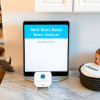
The world is becoming increasingly digital, with new technologies streamlining every aspect of our daily lives – from how we work and communicate, to how we shop, travel, and even manage our homes. Among the array of digital innovation, digital assistants have markedly emerged as an instrumental tool in managing our modern lifestyles. Whether it's Google Assistant, Amazon's Alexa, or Apple's Siri, these virtual entities are redefining how we interact with the digital world.
Understanding the Concept of Digital Assistants
Digital assistants, also known as virtual assistants or voice assistants, are advanced software programs designed to perform an array of tasks leveraging the capabilities of artificial intelligence, machine learning, and natural language processing. They can play music, answer questions, read news, send texts, make phone calls, set reminders, manage smart home devices, and much more. Technological advancements have empowered these Digital assistants to understand and respond to verbal instructions, offering users a seamless and intuitive interface to interact with their digital environment.
Rise of the Digital Assistants: Why We're Embracing the Change
While digital assistants have been among us for a few years, their widespread adoption has surged recently. There are several reasons for this. Firstly, upgrades in machine learning algorithms and language processing have greatly improved their understanding and response accuracy. Secondly, technological advancements have slashed their costs, making them more affordable for a wider audience. Lastly, a surge in smart home devices has created a synergistic effect, leading to their elevated use.
How Digital Assistants are Enhancing Our Lives
Digital assistants have infiltrated various aspects of our lives, greatly enhancing convenience and efficiency. They help manage daily tasks, serve as personal DJs, inform us about weather updates, dictate recipes while we’re cooking, and even control our smart homes. For businesses, digital assistants streamline customer service, enable hands-free computing, and simplify administrative tasks. For the differently-abled community, they serve as an aid in navigation, communication, and entertainment.
The impact of Digital Assistants on Privacy
As digital assistants become increasingly ingrained in our lives, concerns over privacy and data security naturally arise. These devices often store personal data to improve their services, raising questions about data misuse. However, leading technology companies are prioritizing user privacy, deploying encryption techniques and providing users with greater control over their data.
The Future of Digital Assistants
The future of digital assistants seems bright and promising. With advancements in AI and Machine Learning, we can expect them to become more intuitive, intelligent, and pervasive. They may even be integrated into more diverse devices - from cars and smart glasses to wearable technology. While we can't predict the exact trajectory of their evolution, one thing is certain – digital assistants will continue to foster a seamless and interactive digital experience in the future.
















